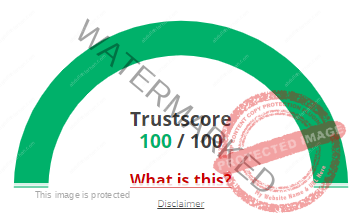Find Your Dream PhD: Openings Across Universities and Research Institutions
Find Your Dream PhD: Openings Across Universities and Research Institutions
Embarking on a PhD is a transformative journey, a deep dive into a specific field, and a significant step towards a fulfilling academic or research career. But finding the right program and advisor can feel like navigating a complex maze. This article aims to simplify the process by highlighting the opportunities available across diverse universities and research institutions, offering tips for navigating the application process, and providing resources to help you find your dream PhD.
A World of Possibilities: Diverse Fields and Institutions
The PhD landscape is vast and varied. From the hallowed halls of Ivy League institutions to cutting-edge research facilities, opportunities abound across a multitude of disciplines. Consider these exciting areas of study:
-
STEM Fields: From artificial intelligence and machine learning revolutionizing industries, to sustainable energy solutions combatting climate change, STEM fields offer a wealth of impactful research avenues. Look to institutions like MIT, Stanford, and Caltech for leading research opportunities in these areas.
-
Humanities & Social Sciences: Explore the complexities of human behavior, history, and culture at universities like Oxford, Cambridge, and Harvard. PhD programs in fields like sociology, history, and literature are critical for understanding societal challenges and shaping the future.
-
Medicine & Health Sciences: Contribute to groundbreaking medical breakthroughs and improve global health outcomes. Institutions like Johns Hopkins, University of California, San Francisco, and the National Institutes of Health offer unparalleled research opportunities in areas like cancer biology, epidemiology, and neuroscience.
- Arts & Design: Push the boundaries of creative expression and explore innovative design solutions at institutions like the Rhode Island School of Design, the Royal College of Art, and the Bauhaus-Universität Weimar.
Beyond these broad categories, highly specialized programs and interdisciplinary research opportunities are increasingly common. Don’t be afraid to explore niche areas and institutions that align with your unique interests.
Finding the Right Fit: Key Considerations
Choosing a PhD program isn’t just about getting accepted; it’s about finding the right environment to thrive in. Here are some key factors to consider:
- Research Interests: Align your research interests with those of the faculty. Scrutinize faculty profiles, publications, and ongoing projects to identify potential advisors whose work excites you.
- Program Culture: Understand the program’s culture and mentorship style. Is it collaborative or independent? What kind of support is offered to students? Talking to current students can provide valuable insights.
- Funding and Resources: Explore funding opportunities, including scholarships, fellowships, and research assistantships. Investigate the availability of resources like lab equipment, computational power, and library access.
- Location and Lifestyle: Consider the location of the university and its impact on your personal well-being. Is it located in a vibrant city or a quieter, more rural setting?
Navigating the Application Process: Tips and Strategies
The PhD application process can be demanding, but careful planning and preparation can significantly improve your chances of success.
- Craft a Compelling Statement of Purpose: This is your opportunity to showcase your research experience, motivations, and goals. Clearly articulate your research interests and how they align with the program’s strengths.
- Secure Strong Letters of Recommendation: Choose recommenders who know you well and can speak to your research potential, work ethic, and academic abilities. Provide them with ample time and information to write strong, personalized letters.
- Prepare for Interviews: Practice answering common interview questions, such as "Why this program?" and "What are your research interests?". Prepare thoughtful questions to ask the interviewers to demonstrate your interest.
- Tailor Your Application: Avoid generic applications. Customize your statement of purpose and other materials to each program you apply to, highlighting the specific reasons why you are a good fit.
- Don’t Be Afraid to Reach Out: Contact professors whose research interests align with yours to express your interest and inquire about potential opportunities.
Resources to Help You Find Your Dream PhD:
- University and Research Institution Websites: Explore the websites of universities and research institutions to browse PhD programs, faculty profiles, and research opportunities.
- Online Databases: Use online databases like FindAPhD, PhD Studies, and the National Science Foundation’s Research Experience for Undergraduates (REU) program to search for PhD openings based on your interests.
- Professional Organizations: Network with professionals in your field and attend conferences to learn about new research trends and potential PhD opportunities.
- Mentors and Advisors: Seek guidance from mentors, professors, and advisors who have experience with the PhD application process.
Conclusion: The Journey Awaits
Finding the right PhD program is a significant endeavor, but with careful planning, research, and preparation, you can find the perfect fit for your academic and research aspirations. Explore the vast landscape of opportunities, connect with potential advisors, and craft a compelling application. The journey towards your dream PhD awaits!
Discover more from abdullahfarhan.com
Subscribe to get the latest posts sent to your email.






